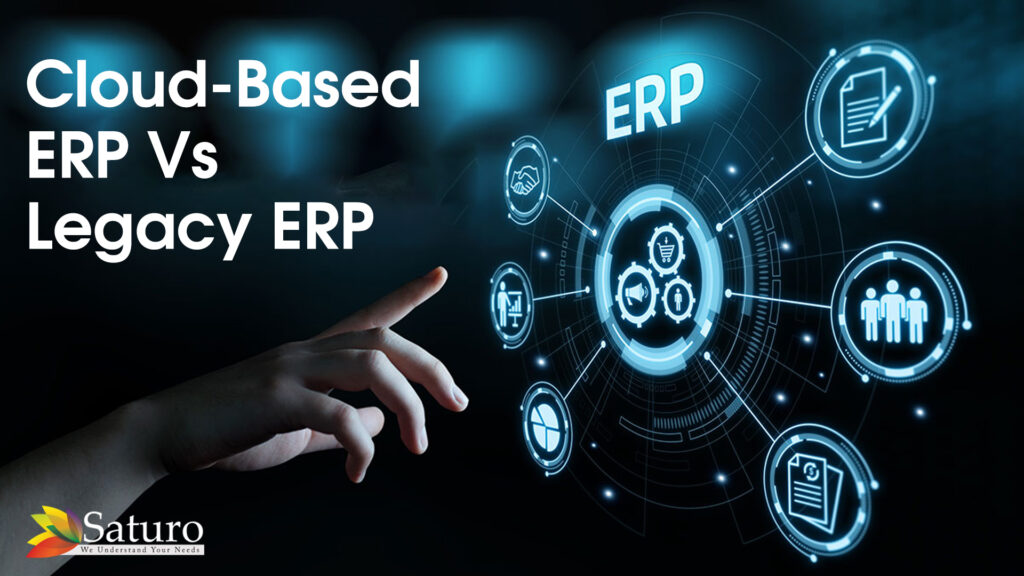
A cloud-based ERP is one that is hosted on the cloud and can be easily updated. Unlike an on-premise system, which is installed on a local computer, an on-premise system requires manual upgrades. This is costly and inefficient, as the software can’t be automatically updated. Also, a cloud-based ERP solution can be deployed and configured without any specialized IT knowledge. Therefore, it is important to choose a cloud-based ERP for your business.
The main advantages of cloud-based ERP are flexibility and speed. As you use the platform, you can configure it quickly and without hassle. The biggest drawback of legacy ERP is the need to install it on-premises. You cannot easily hire a third-party vendor, and you need a dedicated team of IT professionals for the installation. In addition, you have to install and integrate your system manually, which takes up a lot of your valuable time.

The major advantages of cloud-based ERP over on-premises ERP are flexibility and scalability. Moreover, you can easily customize your software to meet your needs. However, you can’t do this with on-premises ERP. Once you customize your software, it’s hard to change or update it with future versions. For this reason, many businesses are hesitant to upgrade their on-premises ERP system.
Using a cloud-based ERP is more convenient than implementing a traditional ERP system. It’s accessible from any location and offers several advantages. With its flexibility and ability to easily customize, cloud ERP is ideal for companies that don’t need a lot of customization. On the other hand, if your company has unique requirements, a legacy system may be a better choice. If you’re looking for a faster implementation, you can always choose a legacy ERP.

The biggest advantage of cloud-based ERP is the fact that it’s more affordable than legacy systems. It’s easier to install and configure, and it’s free. Additionally, it doesn’t require any additional hardware or infrastructure. It’s easy to integrate with other applications. And it’s flexible. But it’s more expensive than a legacy solution. But it’s definitely worth the cost.
Compared to a legacy ERP, a cloud-based ERP is cheaper. It’s easier to install and manage than an on-premises ERP. It’s not limited by the geographical location of your servers. With a cloud-based ERP, it’s available everywhere and can be configured quickly. Its cost is lower than the alternative because it doesn’t require hardware. In addition, it’s less expensive to upgrade.
When it comes to cost, the cloud-based ERP has a more flexible pricing model. Its cost is much lower than a legacy ERP. It’s also more customizable. In addition, the vendor owns the server. While this can reduce your costs, the risk of failure is high. If you’re planning to buy a cloud-based ERP, you should consider all of the costs and benefits of both.
To Know more about Oracle NetSuite Cloud ERP, feel free to reach us on:
Website: https://www.saturotech.com
Saturo Website: https://www.saturotech.com/
BillMade Website: https://billmade.com/index.php/oracle-netsuite-pos/
BillMade Marketplace Website: https://billmade.online/
Email ID: marketing@saturotech.com
Saturo Social Media Links:
- Facebook: https://www.facebook.com/saturotech/
- Instagram: https://www.instagram.com/saturotechnologies/
- LinkedIn: https://www.linkedin.com/company/saturo-technologies-private-limited/
- Twitter: https://twitter.com/saturotech
- YouTube: https://www.youtube.com/channel/UC69yIWnRwPV04KydM64sXTw/videos
BillMade Social Media Links:
- Facebook: https://www.facebook.com/Billmade-786831018169916/
- Instagram: https://www.instagram.com/billmadepos/
- LinkedIn: https://www.linkedin.com/company/billmade-pos/
- Twitter: https://twitter.com/saturotech
- YouTube: https://www.youtube.com/channel/UCdh1AYXBN3M4oBmxwGa7yeg/videos
To Read More of our NetSuite Blogs Visit: https://www.saturotech.com/blog/
To Read More of our BillMade Blogs Visit: https://billmade.com/index.php/blogs